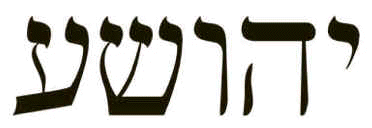Contrary to the popular belief that Christmas was set on Dec. 25 simply to rival a pagan feast, there are at least 4 theories explaining the date from a Christian perspective. All of them may be true.
Theory 1: Day of Creation and the Conception of Jesus.
David Bennett at Per Christum has an excellent article beginning with this explanation:
The main reason early Christians chose December 25th for the date of Christmas relates to the date of the creation of the world. Jewish thought had placed the date of creation on March 25th, and it was early Christian writer Sextus Julius Africanus who suggested that Christ became incarnate on that date (it makes great symbolic sense!).
According to Sextus Julius, since Christ became incarnate from the moment of his conception, this means that, after 9 months in the Virgin Mary’s womb, Jesus was born on December 25. While the scope of Julius’ influence is unknown, nonetheless, we encounter a Jewish reason why the date of December 25th was chosen for the birth date of Jesus.
Theory 2: Chrisostom: The Zechariah Connection
Regarding the dating of Christmas, my favorite account comes from the Eastern liturgical great, St. John Chrisostom. Here is a note from NC Times, with the saint’s account of the matter:
Inside the Vatican magazine also supported Dec. 25, citing a report from St. John Chrysostom (patriarch of Constantinople who died in A.D. 407) that Christians had marked Dec. 25 from the early days of the church. Chrysostom had a further argument that modern scholars ignore:
Luke 1 says Zechariah was performing priestly duty in the Temple when an angel told his wife Elizabeth she would bear John the Baptist. During the sixth month of Elizabeth’s pregnancy, Mary learned about her conception of Jesus and visited Elizabeth “with haste.”
The 24 classes of Jewish priests served one week in the Temple, and Zechariah was in the eighth class. Rabbinical tradition fixed the class on duty when the Temple was destroyed in A.D. 70 and, calculating backward from that, Zechariah’s class would have been serving Oct. 2-9 in 5 B.C. So Mary’s conception visit six months later might have occurred the following March and Jesus’ birth nine months afterward.
“Though it is not a matter of faith, there is no good reason not to accept the tradition” of March 25 conception and Dec. 25 birth, the magazine contended.
Theory 3: Conception and Birth into Heaven
Ken Collins has an excellent summary of this theory on his site.
There is evidence that, some years earlier, Christians had made a sincere attempt to calculate the actual date of Jesus’ birthday. People commonly believe that Christmas was instituted on the date of a pagan holiday to supplant it, but it was actually the other way around. Christmas was there first.
In ancient Judaism, there was a common belief, which ancient Christians inherited, that the prophets of Israel died on the on the same date as their birth or conception. This may be behind the long-standing Christian custom of referring to the date of a martyr’s death as their “birthday in heaven.” According to ancient western calculations, Jesus was crucified on 25 March, so they assumed that 25 March was the date of Jesus’ conception. The Annunciation is still commemorated on that date to this day. Nine months after 25 March leads to 25 December, which would be the birthday of Jesus Christ if all those assumptions and calculations were correct. They aren’t correct, but the fact remains that the date has a Christian origin. footnote
In AD 354, Philocalus wrote a Christian martyrology that dates the nativity of Jesus Christ on December 25, and cites an earlier work as backup. From this we can deduce that Christmas was celebrated on the present date at least as early as AD 335 in Rome.
Theory 4: Mary Knew, They All Knew
ASimpleSinner is a combox hero on this topic and has the best and most simple answer:
Simpler still, a hopelessly plain-spoken traditionalist priest (Fr. Wolfe, FSSP) came out shooting straight from the hip on this issue.
He asks in a live sermon, “What mother here can forget the date of thier first child’s birth?”
As the Catholic Encylopedia relays “No doubt, the words of St. John (19:27), “and from that hour the disciple took her to his own”, refer not merely to the time between Easter and Pentecost, but they extend to the whole of Mary’s later life.”
Traditions are pretty clear that Mary, our inheritance from the last will & testament of Christ (”Woman, behold your son!” Then He said to the disciple, “Behold your mother!” ), remained with the Apostles after Pentecost, encouraging the faithful, and recieving pilgrims.
Think about that. If you lived with the Mother of Our Lord, what would you ask of her? EVERYTHING.
“Mother what was Jesus’ favorite food? When was He born? What games did He play as a child? What were His first words?…”
They knew when His birthday was.
Furhter, we all celebrate it on the same day. People who tell you eastern Christians celebrate it in January are confused by (a) the Epiphany or (b) use of the Julian calendar! From as far East as India to as far West as Spain, it is on the same date on all liturgical calendars. Coincidence?
This has only been doubted in the recent era by folks adhearing to sola scriptura (though the veracity of this date using Biblical evidence is possible!) and modern biblical scholars who rely heavily on a historical critical method that does not consider ancient traditional teachings. The idea that we can’t be sure of the dating of Scripture or what in Scripture is authentic, is just plain odd and foreign to a Catholic.
December 25: Not just a memorial, an actual birthdate.

